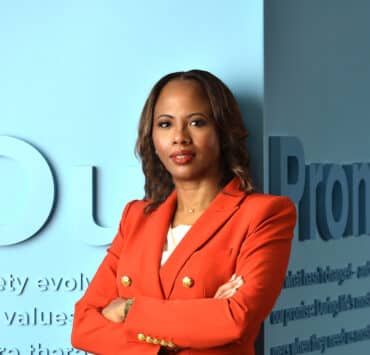|
Getting your Trinity Audio player ready...
|
At the height of the COVID-19 pandemic, the president of the University of Kentucky (UK) asked his general counsel for some advice.
“I gave my advice, and the president asked what case law backed it up,” William Thro recalls. “I remember saying, ‘Well, sir, there’s no case law on anything remotely like this.’ The president responded, ‘So, you’re just making it up as we go along?’”
Thro replied, “I know we’re not violating anyone’s rights, and I’m confident a judge would see this as a reasonable attempt during an unprecedented moment.” It was the best he could advise, and he was right.
The GC’s deep understanding of the law, his previous academic experience and role as solicitor general for the Virginia Office of the Attorney General, and his habitual writings on various aspects of law made him an ideal fountain of knowledge for a massive university facing a once-in-a-lifetime event. Despite that experience, Thro constantly found himself having to get creative in ways he never imagined when he came to UK in 2012.
“Like [the biblical] Esther, all of us—regardless of faith—had to rise to the challenges of a time such as this.”
William Thro
Thro published a short overview of these challenges in an article that appeared in the Yearbook of Education Law’s 2021 edition, aptly titled “A Time Such as This: Courage, Creativity, and the Common Good during the COVID Pandemic.”
The piece was filtered, not through legal precedent or a landmark court case, but the Old Testament’s Book of Esther, what Thro calls the story of an ordinary woman who rose to the challenge of her time to save her people.
“Like Esther, we were ordinary people confronted with a demand to do the extraordinary. Like Esther, those of us who believe in a sovereign God wondered if maybe, just maybe, God had put us in our roles in a time such as this. Like Esther, all of us—regardless of faith—had to rise to the challenges of a time such as this,” he explains.
In practice, it wasn’t always so poetic.
The GC recalls a history PhD who had been hired two years prior to the pandemic to run the university’s Office of LGBTQ+ Resources. “He wound up running our entire contact tracing operation,” Thro says, laughing. “He did an absolutely fantastic job. He hit a home run. We had to put people in roles that they were not accustomed to.”
And the proof is evident. Thro and his team helped their university colleagues develop many new systems and processes to cope with the COVID-19 pandemic. Faced with daunting problems for students, patients, and healthcare workers, they developed new systems and processes from scratch.
“I think a lot of people decided one shot was much more pleasant than repeatedly having a Q-Tip shoved up their nose.”
William Thro
The result? UK moved all instruction online after an extended spring break, developed a telehealth system in eighteen days instead of the expected eighteen months, created an emergency childcare system for healthcare workers in just one weekend, and designed a new financial aid system to ensure the neediest students could cover unexpected expenses.
To prepare for the return to in-person classes in fall 2020, UK constructed a comprehensive student testing, contact tracing, and quarantine system. The university used physical spaces in new ways including converting a senior citizen center into childcare facility, and the football stadium into a vaccination clinic.
That vaccination clinic wound up providing COVID vaccinations for over one hundred thousand people. With about 70 percent of the entire state’s three million citizens receiving a vaccine, that’s a significant portion of the entire state getting vaccinated at Kroger Field.
Students, faculty, and staff who elected not to get vaccinated still had some incentive to get the shots. “If you were not vaccinated, you had to show up every week and be tested,” Thro explains. “I think a lot of people decided two shots were much more pleasant than repeatedly having a Q-Tip shoved up their nose.”
Additionally, the vaccination sites were placed close to the testing locations, which Thro attributes to helping UK achieve over a 90 percent vaccination rate, well above the rate for Lexington and dramatically above the rate for Kentucky.
Thro’s efforts on behalf of the university’s expansive healthcare operation were well-documented when Modern Counsel first spoke to him in 2015, and continue for a state in dire need of any and every available resource. But at this very moment, Thro is just grateful that his wife was right.
“Very early in the pandemic, I remember telling my wife just how unprepared any of us were for this,” he remembers. “We were getting predictive modeling telling us that while we had nine hundred beds in our hospital, next month we’re going to have one thousand COVID patients. My wife looked at me and said, ‘Everything you’ve ever done in your career has prepared you for this.’ I hadn’t thought about it that way, but considering all of the various crises, the insights I got from incredibly talented staff, and the creative thinking I’ve had to do on the job; she was right. She usually is.”
The Time to Write
William Thro will most certainly have a second career should he ever decide to stop practicing law. The general counsel is already a well-published author on a variety of legal topics, and his first book, The Constitution on Campus: A Guide to Liberty and Equality in Public Higher Education, was published by Rowan & Littlefield in 2022.
“A lot of people play golf or tennis,” Thro says. “While I try to get some exercise, my real hobby is writing, specifically law review and scholarly articles. It takes up a lot of my weekends, but I love it. I’m happy to be able to share my knowledge with the next generation and hopefully provide some pointers.”
“Bill has been a superb general counsel to work with over the years. His deep understanding of the University of Kentucky and the complex issues associated with a public institution allow him to provide strategic advice on critical policy and legal matters every day.”
—Janet A. Craig, Chair, Health Care & Insurance Regulatory Service Groups
Sturgill, Turner, Barker & Moloney, PLLC:
“We appreciate the opportunity to work with Bill. His extensive experience as both a constitutional scholar and legal practitioner gives him unique insight and expertise to find creative solutions for the complex legal issues surrounding higher education.”
—Bryan H. Beauman, Partner


